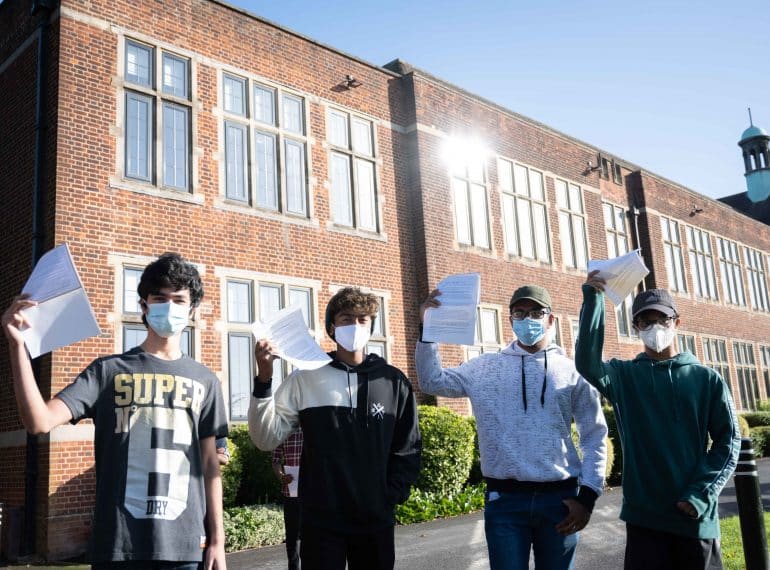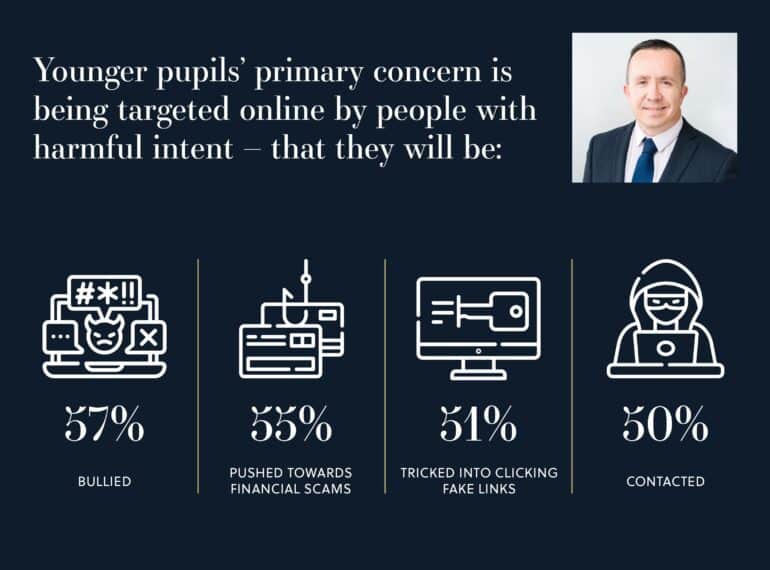
Deputy Head David Ryan (Pastoral) thanks all the parents and pupils who took the time to complete the online survey on eQE earlier this year.
He reports that while there were a few interesting gaps between parents’ and boys’ perceptions, in general, the current Personal Development Time curriculum tallies well with people’s biggest concerns, while the risks that boys in the younger years and their parents were most worried about are now being covered in the new Year 7 digital literacy curriculum. Work is being undertaken to improve resources in certain key areas of online risk, ensuring that the School educates pupils solidly in these before they discover them to be an issue.
The aim of the survey was to allow the School to evaluate the knowledge and understanding of both parents and pupils, giving them the opportunity to state what they feel are the biggest online risks and the areas in which they would like support.
Among the main findings were that:
- Despite smartphones not being allowed in the younger years at QE, it is clear that the majority of pupils do use them outside of School, particularly from Year 9 onwards;
- There is a stark difference between the proportion of students saying they own a games console that is connected to the internet (63%) and the proportion of parents who thought their son had one that was connected to the internet (42%);
- Parents largely agree (60%) that they would check usage of computers and smart phones, but very few (13%) said they would check a games console or tablet device. Similar results were reported for the setting up of restrictions, controls and filters;
- QE boys primarily use: YouTube (81%); WhatsApp (64%); Discord (37%); Snapchat (31% using it daily, or most days); Instagram (27%, but rising to a maximum of 63% in the Sixth Form) and TikTok (22%). They have a good understanding of how to set up privacy settings and report content or other users on these platforms;
- Pupils in the younger years are primarily concerned about being targeted online by people with harmful intentions. They worry about being: bullied (57%); pushed into scams or dubious investments (55%); tricked into clicking on fake links (51%), or simply being contacted by such people (50%);
- Students in the older years are more concerned by the risks posed in: spending too much time online (75%); having to feel perfect, popular and attractive online (39%), and receiving false information in the news (35%);
- Across all year groups, the overwhelming majority of boys felt confident that they could report an issue related to online safety.
The findings of the survey have informed the creation of a new eQE support page for parents and students, which signposts professional support and advice for online safety.

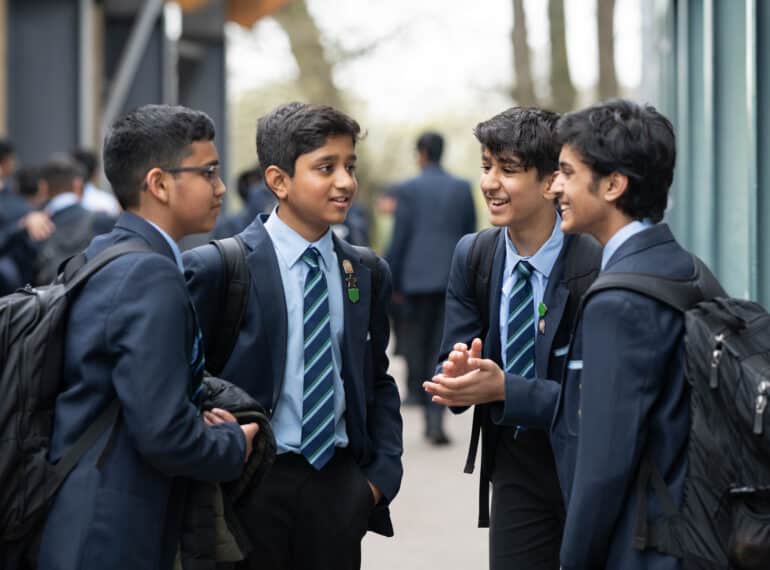

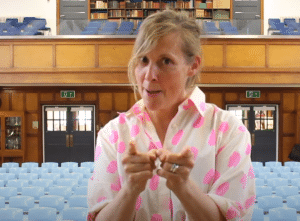 Mel has spent the last few days drooling over photos emailed in to the School as culinary creatives from across the Elizabethan community proudly showed off the fruits of their labour while gathering sponsorship money – turning their dough into dough, as Mel put it. They were free to make any bake of their choice, but extra credit was given for a QE theme or (with equipping the new Music School the focus of this year’s fundraising) for a musical motif.
Mel has spent the last few days drooling over photos emailed in to the School as culinary creatives from across the Elizabethan community proudly showed off the fruits of their labour while gathering sponsorship money – turning their dough into dough, as Mel put it. They were free to make any bake of their choice, but extra credit was given for a QE theme or (with equipping the new Music School the focus of this year’s fundraising) for a musical motif. The WINNER OF THE GREAT QE SPONSORED SHOWSTOPPER BAKE FOR FOUNDER’S DAY 2021 (that’s got a real ring to it)…for its stunning colours (the School colours, natch), his use of varied techniques (chequer-board insides and beautifully crafted fondant instruments to decorate) and its overall ‘stunningness’ and deliciousness….I wish it could have been a feast for my stomach, not just for my eyes…
The WINNER OF THE GREAT QE SPONSORED SHOWSTOPPER BAKE FOR FOUNDER’S DAY 2021 (that’s got a real ring to it)…for its stunning colours (the School colours, natch), his use of varied techniques (chequer-board insides and beautifully crafted fondant instruments to decorate) and its overall ‘stunningness’ and deliciousness….I wish it could have been a feast for my stomach, not just for my eyes…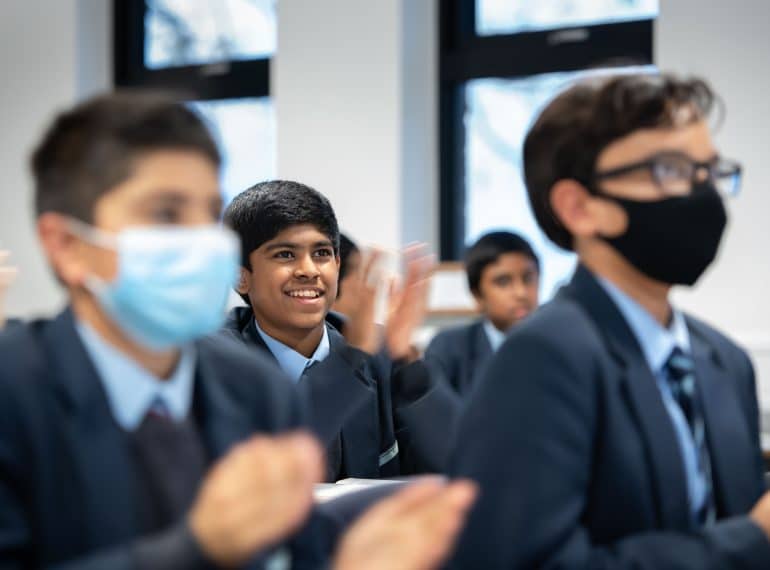
 In a special message, Deputy Head (Pastoral) David Ryan sets out below for the boys what this does – and does not – mean for daily life at QE, while adding a few further pointers for families on staying Covid-safe.
In a special message, Deputy Head (Pastoral) David Ryan sets out below for the boys what this does – and does not – mean for daily life at QE, while adding a few further pointers for families on staying Covid-safe.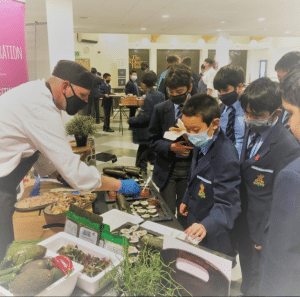 For all QE families
For all QE families